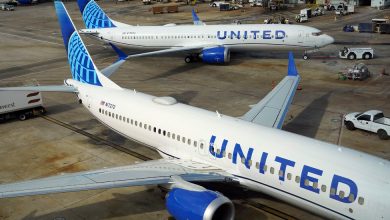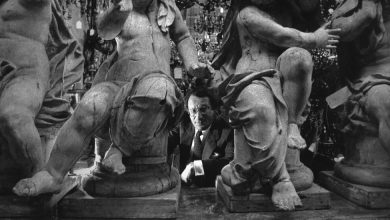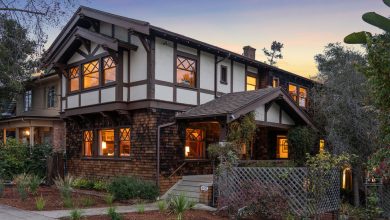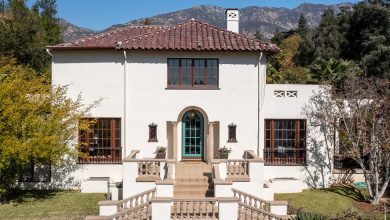Bill de Blasio Knows He Isn’t Loved

A few days after Bill de Blasio announced that he was running for Congress — a comparatively humble ambition when you think about his attempt at the presidency and his flirtation with the idea that he might govern the state of New York — I sat down for breakfast with him, mostly to ask: Why?
We were in a nearly empty diner in Park Slope, where the former mayor has lived since the early 1990s and where theoretically affections for him should run high. Not too long into our conversation, a guy who appeared to be in his 30s, wearing a knit cap, walked passed a few feet away and took out his phone to get a picture. It seemed as if he was about to voice admiration or maybe ask for a photo. Instead he looked directly at Mr. de Blasio, informing him that he was “the worst mayor New York has ever had.”
The moment all too perfectly distilled the problem that Mr. de Blasio faces: He seems to have little understanding of how he is perceived, even in a neighborhood he knows intimately, where he once served on the local school board and the City Council. But in fact, he has every understanding.
“When it comes to being unpopular, I’m unfortunately somewhat of an expert,” he wrote in an essay earlier this month. The man who served two terms as the mayor of the nation’s biggest city, proudly indifferent to what you thought of him, now wants you to know that the bubble of City Hall was oppressive, that he found it hard to be his authentic self and that, as he put it to me, “the person you’re seeing right now is the person I am.”
The person I was seeing was lighthearted and amiable. Bill de Blasio 2.0 is a rapid-response politician, a man seemingly engaged in self-reflection and comfortable with regret. Could we talk about his latest political gambit? “Sure,” he quickly wrote back, when I got in touch. We could meet in person — in fact that was his preference — and we could share a meal. Subsequent texts included exclamation points.
While a journalist and a political candidate sitting down to egg-white omelets is not ordinarily noteworthy, the previous version of Bill de Blasio, the one we last checked in with at the end of the year when he was polling behind even the disgraced Andrew Cuomo, was as likely to offer himself to the press as Anna Wintour would be to mow your lawn.
Despite the success of Mr. de Blasio’s major initiatives — universal prekindergarten, paid sick leave — the hallmark of his mayoralty was his talent for alienating people who were inclined to like him and largely agreed with his policymaking. His defining imperiousness bred distaste across constituencies. Almost nowhere was that distaste felt more viscerally than in brownstone Brooklyn, which, in addition to much of downtown Manhattan, makes up a large swath of the newly outlined 10th District, lending a kind of masochism to his current effort.
On the way home from our breakfast, a few miles away but still within the territory he would represent, I ran into a neighbor in Brooklyn Heights who delivered a more measured appraisal than the one I witnessed two hours earlier at the diner, an evaluation that included the prospect that she would “almost vote for a Republican over Bill de Blasio.”
Like so many others in the area, she had been an early supporter. We stood on a corner for about 10 minutes as she went through her grievances, beginning with Mr. de Blasio’s abandonment of a campaign promise to save Long Island College Hospital from real-estate developers and ending with his drive to incentivize Covid vaccinations in low-income neighborhoods — where resistance was a matter of entrenched distrust — with the promise of free Shake Shack French fries.
Mr. de Blasio believes his last year in office was his most successful, and that his administration’s management of the pandemic, one that became a model for other cites, will matter to voters. Leaving aside that parents of schoolchildren who were stuck at home with them for much of last year may well feel differently, in the current news cycle, eight or 10 months ago can feel like a quarter-century; emotion can stick forever. “I came across as aloof,” the former mayor told me, understating things. “I needed to help people see me.”
In many ways, Mr. de Blasio has spent the past five months since he left office living the creative-class Brooklynite fantasy — renovating a townhouse, writing, delivering commentary on “Morning Joe.” He thought about teaching. But none of this called to him for the long term. Then on Monday, May 16, after lunch with a friend in Greenwich Village — you don’t get to linger over a meal when you are governing eight million people — he arrived home to find emails about the newly created district, and he knew what he would do next. Little deliberation was necessary. “It was sweet to be connected to family,’’ he said of his brief reprieve from politics. “The writing was rewarding, but it pales in comparison to public service.”
In the past, a seat in the House of Representatives has been a steppingstone to the mayoralty of New York and not an Act II. John Lindsay and Ed Koch both served in Congress before they managed City Hall. The precedent for going in the other direction is not glorious. Fernando Wood returned to Congress after his three-term tenure as mayor in the mid-19th century; he was known as a corrupt autocrat and Confederate sympathizer.
The idea of Bill de Blasio, at 61, having held one of the most prestigious and challenging political offices available to mankind, then going to Washington as a freshman congressman, living with fellow representatives a generation younger in a three-bedroom rental in Dupont Circle, wondering whose turn it is to bring home a half-gallon of oat milk, is absurd enough to leave you wondering if a reality show isn’t the actual play. It is not. He wants to provide a voice for an urban agenda otherwise lacking in the federal government.
That he believes he can build a winning coalition, which he has successfully done before, to get there overlooks certain difficult truths. In addition to all the disgruntled white professional-class voters he would represent, the new district also includes Chinatown and Sunset Park, where predominantly Asian voters, many low-income, did not take well to the former mayor’s position on ending the entrance exam for specialized high schools and his wish to phase out gifted and talented programs.
When I asked him about this, he said that he did not fully realize the special place these schools and classes held in the culture. “I should have engaged leaders from the Asian community,” he told me. “I’m upset because I naïvely assumed there would be consensus.”
It is hard to imagine living in New York for decades, driving past so many test-prep centers in Queens and not fully appreciating the vaunted status schools like Stuyvesant and Brooklyn Tech — which Mr. de Blasio’s son, Dante, attended — hold in these communities.
There is also the matter of who else will be entering the race, in a constellation of neighborhoods where voter-information levels are unusually high and name recognition might not matter much. Mondaire Jones, who serves in another district, grew up in Section 8 housing and made his way to Stanford and Harvard, has also announced his candidacy. Should Daniel Goldman enter the field, he is likely to raise a lot of money based on his popularity as the House Democrats’ lead counsel during the first Trump impeachment proceedings and the fact that he lives in TriBeCa. Mr. de Blasio is energized for a summer of knocking on doors.





